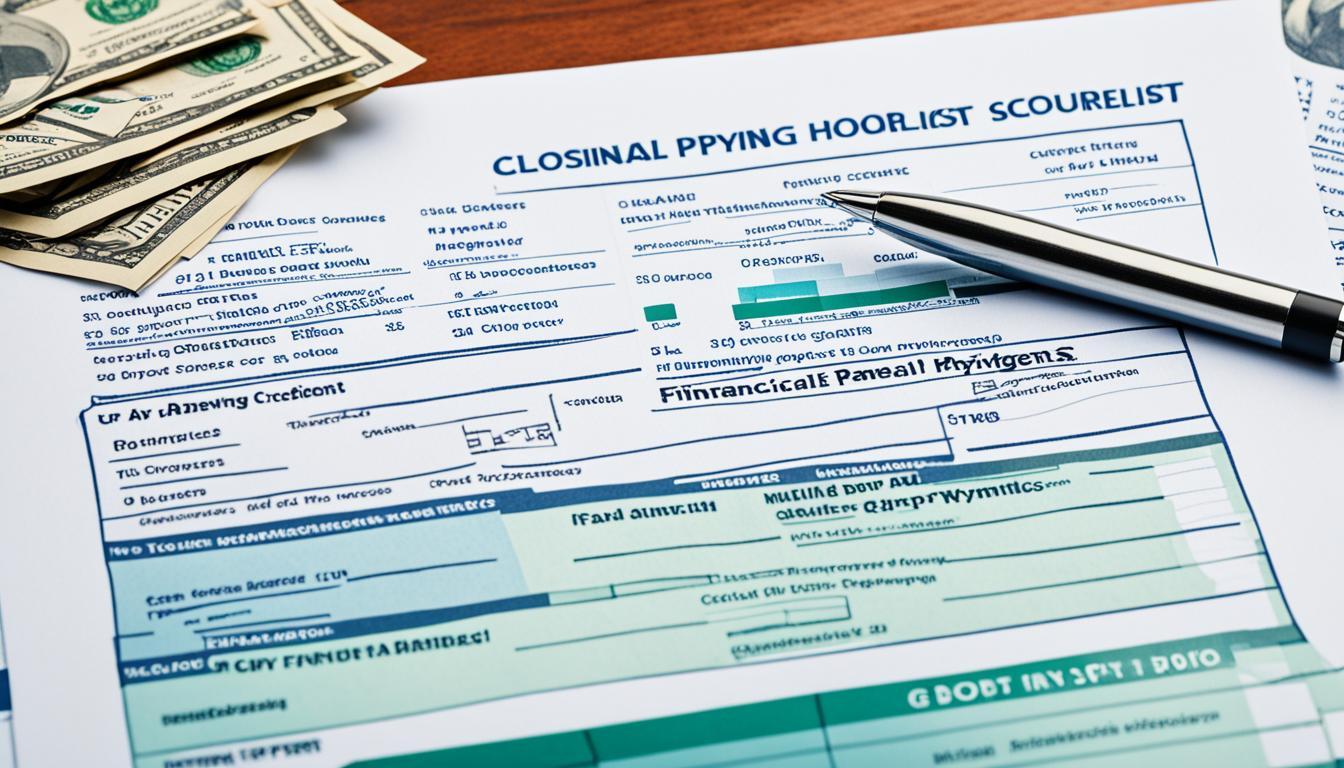Essential Insights: 10 Key Facts About the
Home-Buying Journey!

Did you know that buying a home is one of the most significant financial decisions you’ll make in your lifetime? It’s a milestone that comes with numerous considerations and complexities, making it vital to approach the process with the right knowledge and insight. Whether you’re a first-time homebuyer or have experience in the real estate market, understanding the essential facts about the home-buying journey is crucial.
In this article, we’ll explore ten key facts that are essential to know about the home-buying journey. These insights will help you navigate the process with confidence, ensuring that you make informed decisions every step of the way. From researching the housing market to understanding the financial aspects and working with a real estate professional, we’ll provide you with valuable tips and guidance to help you achieve your dreams of homeownership. Want To Earn An Extra $2000 Per Month?
Key Takeaways
- Buying a home is a significant financial decision with various considerations and complexities.
- Thorough research of the housing market is crucial before starting the home-buying process.
- Finding the right home that meets your needs and preferences is essential.
- Understanding the financial aspects of buying a home, including budgeting and financing, is crucial.
- Working with a knowledgeable real estate professional simplifies the home-buying process.
The Importance of Researching the Housing Market

Before embarking on your home-buying journey, it’s crucial to thoroughly research the housing market. Navigating the housing market can be overwhelming, but with the right knowledge and information, you can make informed decisions and find the perfect property that meets your needs.
Researching the housing market is essential to understanding current trends, prices, and inventory. By staying informed, you can identify opportunities and negotiate effectively. Here are some essential home-buying facts to guide you:
- Property prices: Explore recent property sales and compare prices in different neighborhoods. This will give you an idea of the average costs in the areas you’re interested in.
- Market trends: Analyze market trends to determine whether it’s a buyer’s or seller’s market. This information can influence your negotiation strategy and timing.
- Location analysis: Consider the location’s proximity to essential amenities, schools, transportation, and future development plans. These factors can affect property values and your overall satisfaction with the home.
- Property types: Understand the different types of properties available, such as single-family homes, condos, or townhouses. Each type has its pros and cons, so research which one aligns with your preferences and lifestyle.
By taking the time to research the market, you’ll gain a deeper understanding of property buying advice and market dynamics. This knowledge will empower you to make well-informed decisions throughout the home-buying process.
“Research is to see what everybody else has seen and to think what nobody else has thought.” – Albert Szent-Gyorgyi
|
Advantages of Researching the Housing Market |
Disadvantages of Not Researching the Housing Market |
|
|
Don’t underestimate the importance of researching the housing market. Start by utilizing online resources, attending open houses, and consulting with real estate professionals. The more time and effort you invest in market research, the more confident you’ll be in your home-buying decisions. Write Blog Posts $35 An Hour!
Finding the Right Home for Your Needs

Finding the perfect home that meets your needs and preferences is a crucial step in your home-buying journey. By following these valuable tips and strategies, you’ll be well-equipped to identify and secure the ideal home for you and your family.
1. Define Your Priorities
Start by determining your must-have features and preferences in a home. Consider factors such as location, size, number of bedrooms and bathrooms, yard space, and any specific amenities or design preferences that are important to you.
2. Set a Realistic Budget
Evaluate your financial situation and determine a realistic budget for your home purchase. Take into account not only the initial purchase price but also ongoing expenses such as property taxes, homeowners insurance, and maintenance costs.
3. Research Neighborhoods
Do thorough research on the neighborhoods you are interested in. Consider factors such as safety, proximity to amenities and services, school districts, transportation options, and future development plans that may impact property values.
4. Work with a Knowledgeable Realtor
Engage the services of a knowledgeable real estate agent to assist you in your home search. A professional realtor will have access to comprehensive listings, market insights, and negotiation skills that can help you find the right home at the right price.
5. Attend Open Houses and Showings
Visit open houses and schedule showings to physically experience potential homes. Pay attention to the overall condition, layout, functionality, and potential for future modifications or improvements.
6. Take Notes and Make Comparisons
Keep detailed notes of each property you visit, including its features, pros, and cons. This will help you make informed comparisons later on and ensure you select a home that aligns with your priorities.
“The key to finding the right home is to emphasize your needs and preferences while staying within a realistic budget.”
7. Conduct Inspections and Assessments
Consider hiring professionals to conduct thorough inspections of the property, including a home inspection, pest inspection, and potentially even a structural assessment. This can help identify any potential issues or hidden costs associated with the property.
8. Review and Negotiate the Offer
Once you’ve found a home you’re interested in, work with your real estate agent to review and negotiate the offer. Take into account market conditions, recent comparable sales, and any necessary contingencies or repairs that may need to be addressed.
9. Secure Financing
Work with a reputable mortgage lender to secure financing for your home purchase. Ensure you understand the different loan options available, interest rates, and the overall impact on your monthly budget.
10. Close the Deal
Coordinate with your real estate agent, lender, and other involved parties to complete the necessary paperwork and finalize the purchase. Conduct a final walkthrough of the property and ensure all contingencies and conditions have been met before closing the deal. $800/week for trying out filters on Snapchat
By following these home-buying tips and strategies, you’ll be well-prepared to find the right home that meets your needs and preferences. Remember to stay patient, be thorough in your research, and trust your instincts throughout the process.
Understanding the Financial Aspects of Buying a Home

Buying a home involves various financial aspects that need to be thoroughly understood. In this section, we’ll delve into important considerations such as creating a budget, securing financing, understanding mortgage options, and more.
When it comes to purchasing a home, having a clear understanding of your financial situation is crucial. Before you start exploring potential properties, it’s essential to create a budget. Take into account your income, expenses, and any other financial obligations you may have. This will help you determine how much you can comfortably afford to spend on your new home.
Once you have a budget in place, it’s time to secure financing. This typically involves getting pre-approved for a mortgage loan. A pre-approval not only gives you a better idea of how much you can borrow but also makes you a more attractive buyer to sellers. Shop around and compare rates and terms from different lenders to find the best fit for your needs.
Understanding different mortgage options is another crucial aspect of the home-buying process. There are various types of mortgages available, including fixed-rate mortgages, adjustable-rate mortgages, and government-backed loans. Each option has its pros and cons, so it’s important to research and thoroughly understand the terms and conditions associated with each.
Additionally, don’t forget about other costs associated with buying a home. These may include closing costs, property taxes, homeowner’s insurance, and maintenance expenses. It’s essential to budget for these costs to ensure you’re fully prepared.
Buying a House Checklist
- Create a realistic budget based on your financial situation
- Get pre-approved for a mortgage loan
- Research and understand different mortgage options
- Budget for additional costs like closing costs, property taxes, and maintenance expenses
By understanding the financial aspects of buying a home and following a comprehensive checklist, you’ll be better equipped to make informed decisions throughout the home-buying process. Next, we’ll explore the importance of working with a real estate professional who can guide you through every step of the journey.
The Importance of Working with a Real Estate Professional

When it comes to navigating the complex world of real estate, having a knowledgeable professional by your side can make all the difference. In this section, we’ll explore the essential reasons why working with a real estate agent or broker is crucial in simplifying the home-buying process. Article Writers – $250 a day
The Benefits of Having a Real Estate Professional

Real estate professionals bring expertise, experience, and a deep understanding of the market to the table. Here are some key benefits they offer:
- Market Knowledge: A real estate professional has their finger on the pulse of the local market, knowing the current trends, property values, and upcoming developments. They can provide valuable insights to help you make informed decisions in your home search.
- Negotiation Skills: Buying a home often involves negotiations, and having a skilled negotiator on your side can help you secure the best possible deal. Real estate professionals are adept at advocating for their clients and ensuring their interests are protected.
- Access to Listings: Real estate agents have access to a wide range of listings, including properties that may not be readily available to the public. They can help you find homes that meet your specific criteria, saving you time and effort in the process.
- Guidance through the Process: The home-buying journey can be complex and filled with paperwork, legalities, and deadlines. A real estate professional can guide you through every step of the process, ensuring you meet all the necessary requirements and avoiding any pitfalls along the way.
Finding the Right Professional for Your Needs
Choosing the right real estate professional is vital to the success of your home-buying journey. Here are some tips to help you find the perfect match:
- Do Your Research: Take the time to research and interview multiple agents to find someone who understands your needs, has experience in the local market, and has a track record of success.
- Ask for Recommendations: Seek recommendations from friends, family, and colleagues who have recently worked with a real estate professional. Their firsthand experiences can help you narrow down your options.
- Check Credentials: Ensure that the agent or broker you choose is licensed, accredited, and a member of professional real estate organizations. These qualifications demonstrate their commitment to maintaining high standards of professionalism.
- Trust Your Instincts: Ultimately, trust your instincts when selecting a real estate professional. You should feel comfortable communicating with them, confident in their abilities, and believe that they have your best interests at heart.
By working with a real estate professional, you can gain a competitive edge in the home-buying process, ensuring a smoother experience and maximizing your chances of finding your dream home. How to make $1,000 per day on complete auto-pilot 24/7
Conclusion
In conclusion, armed with the essential insights provided in this article, you are well-equipped to embark on your home-buying journey with confidence. Thoroughly researching the housing market is crucial to make informed decisions and navigate the process successfully. By understanding the current market conditions, trends, and prices, you can identify suitable opportunities and negotiate effectively.
Once you have gathered the necessary knowledge, it’s time to find the right home for your needs. Consider factors such as location, size, amenities, and proximity to schools, workplaces, and essential facilities. By carefully evaluating your preferences and requirements, you can make a well-informed choice that aligns with your lifestyle and future goals.
Understanding the financial aspects of buying a home is another critical step. Create a realistic budget that includes not only the purchase price but also associated costs like closing fees, inspections, and repairs. Research different financing options and mortgage programs to find the one that suits your financial situation and goals best.
Working with a trusted real estate professional can be invaluable throughout the home-buying process. They can provide expert advice, guide you through negotiations, handle paperwork, and ensure a smooth and stress-free experience. Look for an agent or broker with a solid track record, excellent communication skills, and a deep understanding of the local market.
FAQ
How long does the home-buying process typically take?
The timeline for purchasing a home can vary depending on various factors, such as market conditions and your individual circumstances. On average, it takes around 30 to 45 days from the time you make an offer to the closing of the sale.
What are the upfront costs involved in buying a home?
When buying a home, you can expect to incur several upfront costs, including a down payment, closing costs, and inspection fees. It is essential to budget for these expenses to ensure a smooth home-buying process.
How much should I save for a down payment?
The amount you should save for a down payment will depend on various factors, including your financial situation and the type of mortgage you qualify for. Typically, a down payment ranges from 3% to 20% of the home’s purchase price.
Do I need a pre-approval letter before shopping for a home?
It is highly recommended to obtain a pre-approval letter from a lender before shopping for a home. This letter shows sellers that you are a serious buyer and that you have already been approved for a specific loan amount. It can strengthen your offer and increase your chances of securing your dream home.
How can I determine how much home I can afford?
To determine how much home you can afford, it’s crucial to consider your income, debts, credit score, and other financial obligations. A general rule of thumb is that your monthly mortgage payment should not exceed 28% of your gross monthly income.
Should I buy a fixer-upper or a move-in-ready home?
The decision between buying a fixer-upper or a move-in-ready home depends on your personal preferences, budget, and willingness to take on renovation projects. Fixer-uppers often offer greater potential for customization but also require additional time and resources to complete the necessary renovations.
What are the key factors to consider when choosing a neighborhood?
When choosing a neighborhood, consider factors such as proximity to schools, amenities, safety, property values, and future development plans. It’s essential to find a neighborhood that aligns with your lifestyle and long-term goals.
Should I work with a buyer’s agent or a seller’s agent?
As a buyer, it is typically advisable to work with a buyer’s agent who represents your interests exclusively. A buyer’s agent can help you find suitable properties, negotiate the best terms, and guide you through the home-buying process from start to finish.
What is a home inspection, and do I need one?
A home inspection is a professional examination of a property’s condition, including its structural integrity, mechanical systems, and potential issues. It is highly recommended to have a home inspection to identify any hidden problems or deficiencies before finalizing the purchase of a home.
What are some common mistakes to avoid when buying a home?
Some common mistakes to avoid when buying a home include overspending, neglecting to get pre-approved, skipping a home inspection, and not researching the neighborhood thoroughly. It’s important to approach the home-buying process with careful consideration and avoid these pitfalls.
